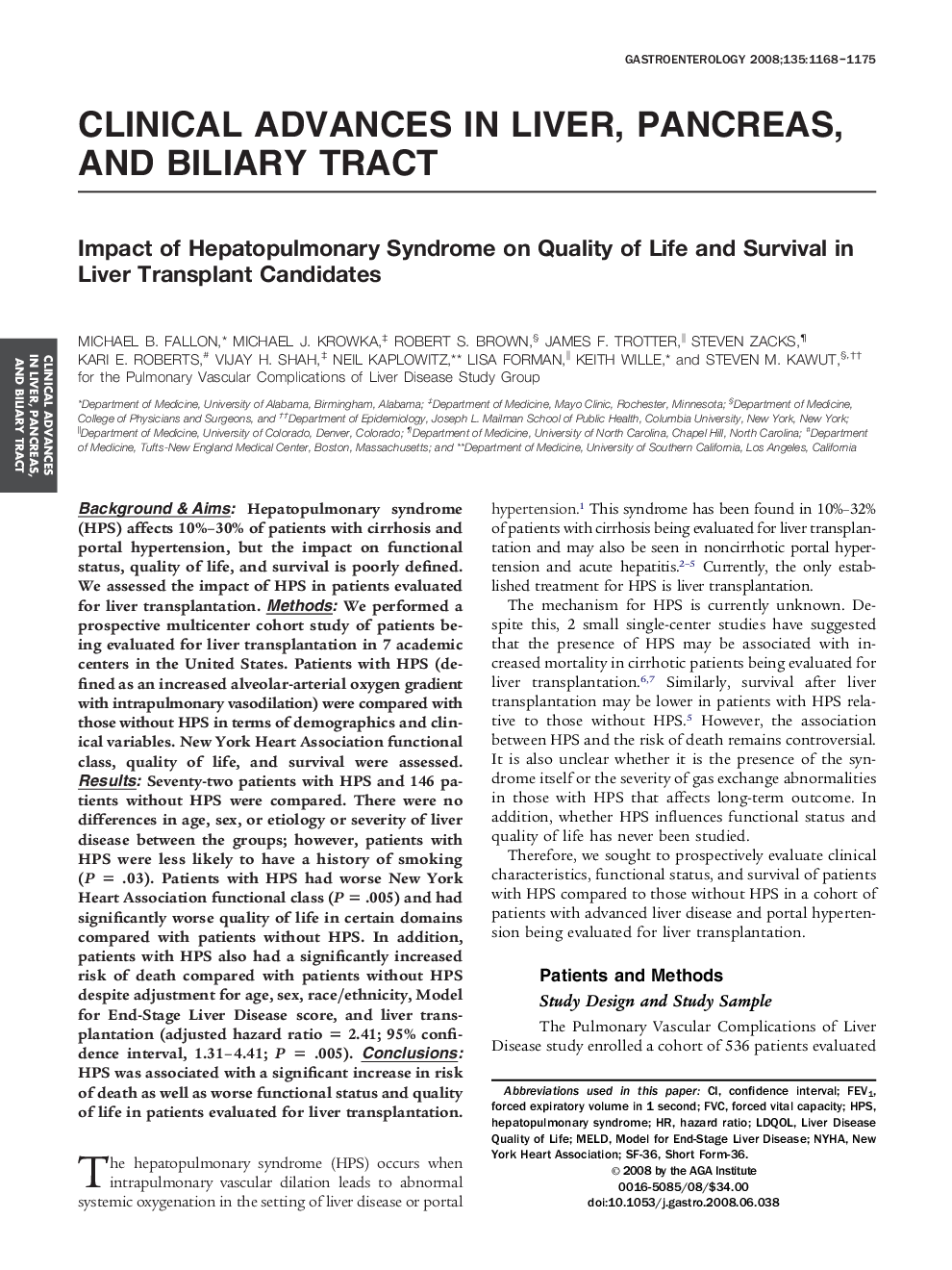| Article ID | Journal | Published Year | Pages | File Type |
|---|---|---|---|---|
| 3299140 | Gastroenterology | 2008 | 8 Pages |
Background & Aims: Hepatopulmonary syndrome (HPS) affects 10%–30% of patients with cirrhosis and portal hypertension, but the impact on functional status, quality of life, and survival is poorly defined. We assessed the impact of HPS in patients evaluated for liver transplantation. Methods: We performed a prospective multicenter cohort study of patients being evaluated for liver transplantation in 7 academic centers in the United States. Patients with HPS (defined as an increased alveolar-arterial oxygen gradient with intrapulmonary vasodilation) were compared with those without HPS in terms of demographics and clinical variables. New York Heart Association functional class, quality of life, and survival were assessed. Results: Seventy-two patients with HPS and 146 patients without HPS were compared. There were no differences in age, sex, or etiology or severity of liver disease between the groups; however, patients with HPS were less likely to have a history of smoking (P = .03). Patients with HPS had worse New York Heart Association functional class (P = .005) and had significantly worse quality of life in certain domains compared with patients without HPS. In addition, patients with HPS also had a significantly increased risk of death compared with patients without HPS despite adjustment for age, sex, race/ethnicity, Model for End-Stage Liver Disease score, and liver transplantation (adjusted hazard ratio = 2.41; 95% confidence interval, 1.31–4.41; P = .005). Conclusions: HPS was associated with a significant increase in risk of death as well as worse functional status and quality of life in patients evaluated for liver transplantation.
